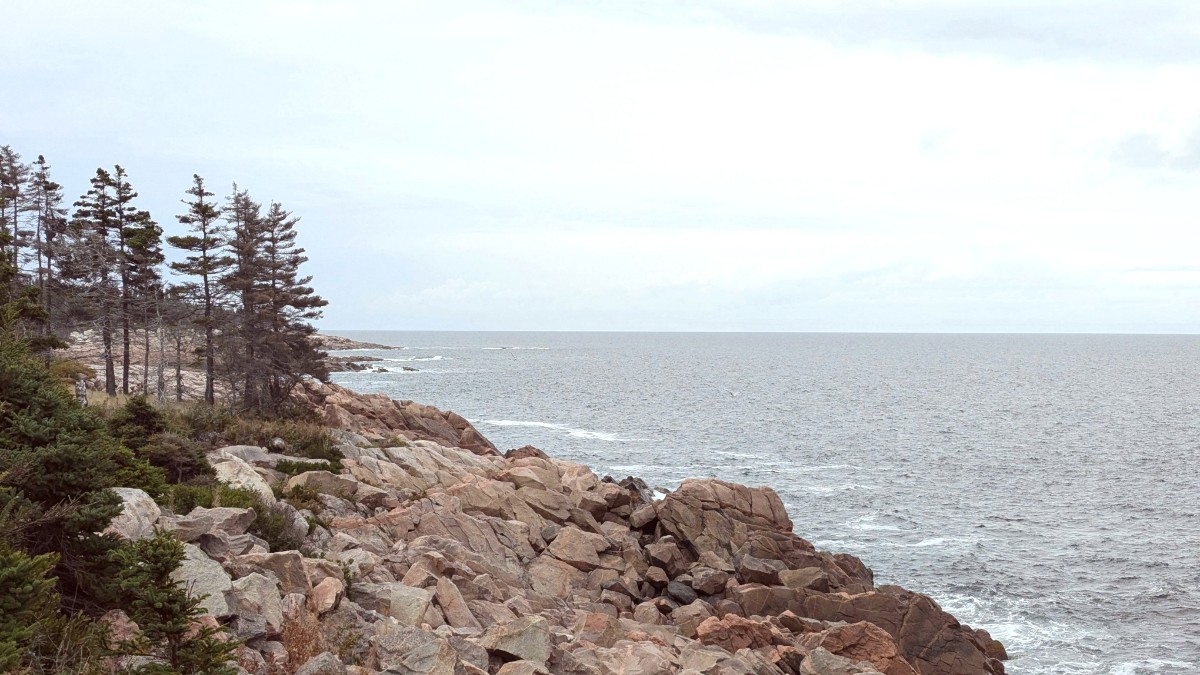
Canada
Cape Breton Island has a humid continental climate, meaning it has warm summers and cold, snowy winters. Spring (April-May) sees temperatures from 0°C to 15°C (32°F to 59°F), with unpredictable weather. May brings longer days and initial signs of green.
Summer (June-August) is the warmest period, averaging 15°C to 25°C (59°F to 77°F). Humidity remains moderate. Summer is the driest period, with comfortable days for outdoor pursuits. Autumn (September-October) brings mild temperatures in September (10°C to 20°C / 50°F to 68°F), cooling to 0°C to 10°C (32°F to 50°F) in October. Precipitation rises during this season.
Cape Breton Island does not experience monsoons, but certain weather patterns bear noting:
Atlantic Hurricane Season: Runs from June 1 to November 30. Direct landfalls are rare, but remnants of storms can bring heavy rain, strong winds, and coastal surges, mainly in late summer and early fall. Monitor weather forecasts. Fog: Common along coastal areas, especially in spring and early summer, potentially affecting visibility on scenic drives. Drive with caution. Snowstorms/Blizzards: Frequent in winter, causing road closures and travel disruptions. Allow flexibility if visiting in winter.
Be aware of seasonal hazards.
Not applicable; Cape Breton does not experience monsoons.
June to November. Remnants of storms may bring heavy rain and strong winds (August-September).
Drive carefully in varied conditions.
Common in summer, with excellent views on the Cabot Trail.
Frequent along coastal areas, especially in spring and early summer, impacting visibility.
Prepare for cold and snow.
Opportunities for snowshoeing and cross-country skiing exist.
Frequent in winter, causing road closures and travel disruptions.
Scenic Drives (Cabot Trail): Late September to mid-October for peak fall foliage. June through August brings lush green landscapes and warmer weather, ideal for stops. Hiking: Late May to mid-October is suitable. Fall brings comfortable temperatures and fewer insects. Summer provides long daylight hours. Whale Watching: July to September is the peak season for seeing various whale species.
Celtic Music/Cultural Events: The Celtic Colours International Festival in October is world-renowned, showcasing the island's musical heritage. Local ceilidhs (music gatherings) happen year-round, more frequently in summer and fall, offering chances for impromptu music and dance. Golf: June to September offers optimal conditions for playing on Cape Breton's courses, including world-class links.
Warmest weather, full range of tours, all attractions open.
Spectacular colors along the Cabot Trail, drawing many visitors.
Fewer crowds, lower prices, pleasant weather for outdoor activities.
Lowest prices, opportunities for winter sports, unique quiet beauty.
World-renowned event for music and cultural enthusiasts.
Entry rules vary by nationality. Proper documentation makes a smooth arrival possible.
Canada requests an Electronic Travel Authorization (eTA) for visa-exempt foreign nationals who fly into Canada. This holds for citizens of many countries that do not need a traditional visa. If your country needs a visa, a Temporary Resident Visa (TRV) is necessary. United States citizens generally do not need an eTA or TRV for tourism but must carry proper identification, like a passport.
Proper documents make entry into Canada smooth. Carry both original and backup copies.
Costs vary widely depending on your travel style.
Maximizing your budget on Cape Breton Island is possible with smart choices.
Cape Breton Island is a safe destination. Preparing for common health concerns and knowing emergency procedures aids your visit.
No specific vaccinations are necessary for entry to Canada.
Ensure routine vaccinations (MMR, Diphtheria, Tetanus, Pertussis, Polio) are current. Consider Hepatitis A and B for longer stays.
Consult a healthcare professional 4-6 weeks before your trip for personalized advice.
Stay aware of local health concerns.
Tick-borne diseases (Lyme): Present in Nova Scotia. Wear long pants and sleeves in wooded areas. Use insect repellent with DEET or Picaridin. Check for ticks after outdoor activities. Sawyer Products Picaridin Insect Repellent is an option.
Sun exposure: UV index may be high. Use high SPF sunscreen, wear sun-protective clothing, a wide-brimmed hat, and sunglasses. Neutrogena Ultra Sheer Dry-Touch Sunscreen SPF 70. Cold weather risks (winter): Hypothermia and frostbite. Dress in layers, stay dry, limit exposure. Dehydration: Drink plenty of water during physical activity. Carry a reusable water bottle; a Hydro Flask works well.
Tap water is generally safe to drink. Food hygiene standards are high.
Canada offers a high-quality healthcare system. Non-residents generally pay the full cost of medical services, making travel insurance highly significant.
Hospitals are in larger towns like Sydney, Baddeck, and Chéticamp. Clinics and pharmacies are also available.
For any emergency (Police, Fire, Ambulance), dial 911 anywhere in Canada. This number links you to immediate help.
Cape Breton Island is seen as a safe destination. However, certain risks exist.
Travel insurance is highly advised for all visitors. This covers unexpected events.
Seek policies covering medical emergencies, emergency evacuation, trip cancellation/interruption, and baggage loss. World Nomads, SafetyWing, Insubuy are options.
Check if your policy covers planned activities, especially adventure sports. Review terms carefully.
Emergency Services: Dial 911. Non-emergency Police (Sydney): (902) 563-0800. Keep your country's embassy/consulate info available.